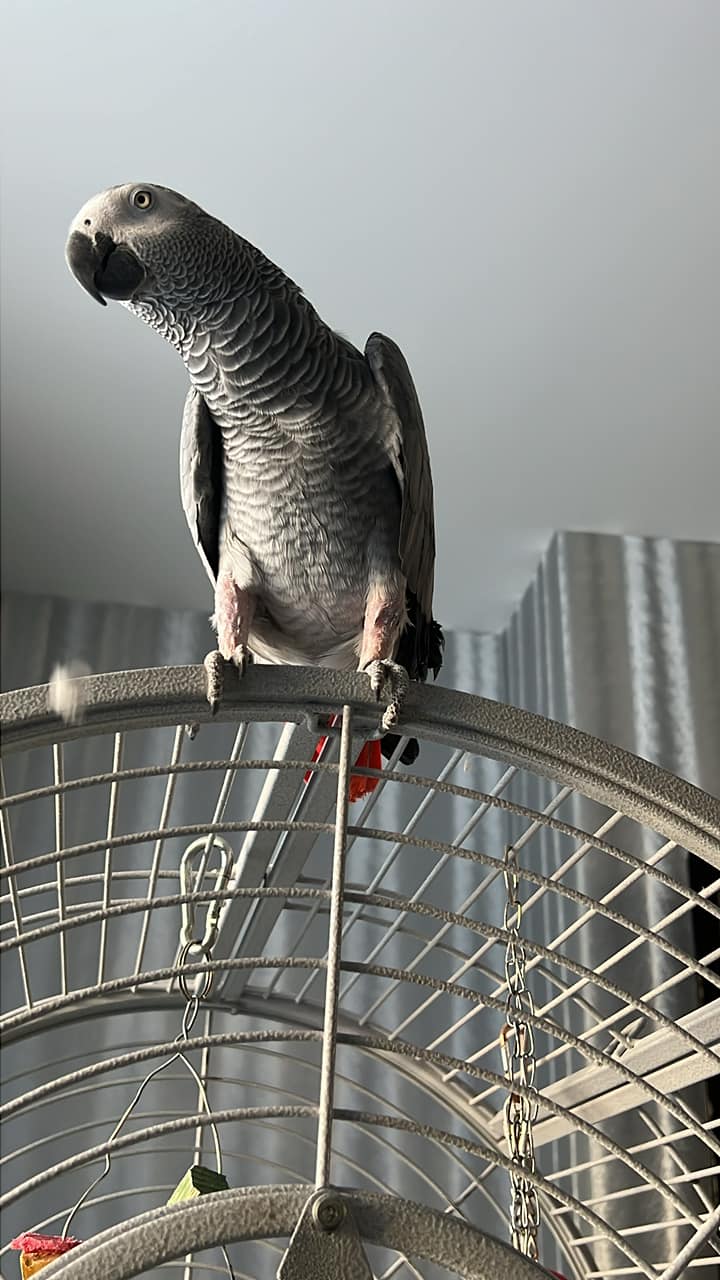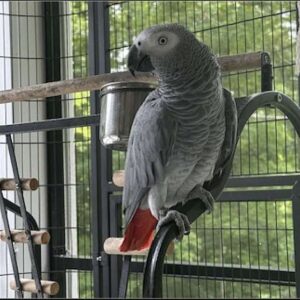African Grey For Sale
Our African grey for sale are physically examined every 6-12 months
Consult a veterinarian with experience in avian medicine if you have any questions or concerns about your bird’s health.
Annual fecal examination for parasites, yeast, and bacteria
Vaccination for Polyomavirus, as directed by your veterinarian
Routine blood testing
Wing, nail trimming as needed
Common Medical Disorders
Behavioral problems (e.g. feather picking, fearfulness, aggression)
Respiratory diseases
Hypocalcemia syndrome
Circovirus (PBFD virus)
Nasal blockages (bacterial, fungal, secondary to malnutrition)
Proventricular dilatation disease (PDD)
Behavior,african-grey-parrot-care
Frequently bonds with one family member, rejecting others.
Often fearful or intolerant of strangers.
Parent-raised African gray chicks are considered to be better adjusted than those raised entirely by humans. Baby birds that receive human handling while still in the nest tend to show fewer behavioral problems (e.g. feather picking, fearfulness, aggression) at maturity than those that do not.
Tamed birds readily adapt to new surroundings and activities; expose early to daily activities in your household as well as to other pets
Are intelligent, curious, and love to explore their surroundings.
Need environmental enrichment, interesting toys, and foraging exercises to reduce the chance of behavioral problems.
Did you know:
African Greys are said to be the most intelligent of all parrots. Studies conducted have shown that African Greys can perform at the cognitive level of a 4-6 year old child, being able to differentiate between objects, shapes, colours and materials. They are also renowned for their incredible talking capability.Natural branches of varying lengths, shapes and thicknesses should also be provided. There are many native branches that you could offer your African Grey such as eucalyptus, gum, grevillea, bottle brush and lilly pilly, many of which have natural nuts and flowers that providing a foraging opportunity for your African Grey. This also allows African Greys to properly exercise their feet and beak as they can chew and strip the bark perches.
Shopping list to show what you need to look after an African Grey:
Cage; 40″ X 30″ X 65″ medium gauge wire
Food and water bowls
Perches
Cage tidy
Ozpet litter
Cage Cover
Pellets
Vitamins
Worming
Avicare disinfectant
Cuttlefish
Lice & Mite Spray
Carry cage
Natural perches
Cement perches
Foraging toys
Colourful toys
Ladders
Parrot pad
Play stand










Reviews
There are no reviews yet.